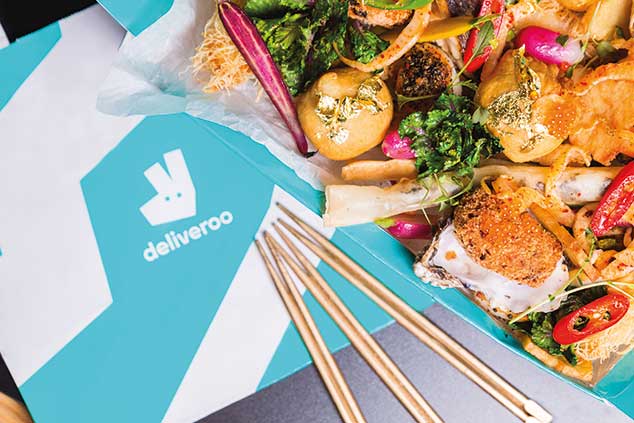
UK food-delivery platform Deliveroo has announced that Amazon has become a major investor in its business through a new $575m funding round, notes Sam Shead in Forbes. This increases the overall amount invested in Deliveroo to $1.53bn, giving it “a war chest to cement its position” at home and finance further growth. Amazon, meanwhile, is “buying its way back into the meal-delivery market”, which is expected to be worth $365bn by 2030, after its own service, Amazon Restaurants, “floundered”.
Amazon’s investment in Deliveroo could well be the “amuse-bouche” for a broader tie-up, says Alex Webb on Bloomberg, and there are “a lot of reasons [why that] would make sense”. First, it’s a good idea for Amazon to maintain a foothold in the food-delivery markets as rival food platforms in Latin America and India “are already extending into products such as pharmaceuticals and groceries, and that approach could spread to other regions”.
Another, more positive reason is that combining deliveries from Amazon and Deliveroo means both companies could make more efficient use of their delivery network during slack periods.
An Amazon-Deliveroo collaboration may be good news for the two firms involved, but their competitors won’t be happy, says Dominic Walsh in The Times. Indeed, shares in Just Eat fell by 8% on the news, as it faces “further pressure on delivery fees” and more discounting. Further bad news comes from Uber’s initial public offering last week. The transportation network company will probably use at use at least some of the $8.1bn raised to expand its Uber Eats delivery business.
Just Eat isn’t the only firm under pressure in a sector “that epitomises the promise and profligacy of Silicon Valley”, says Stephen Wilmot in The Wall Street Journal. Indeed, when news of Amazon’s investment hit the wires, “shares in Delivery Hero and Takeaway.com, which offer similar services to Deliveroo in other markets, also cratered”. Mergers to shore up profitability are unlikely while money is “flowing so freely” into the sector; for now, investment will finance further rapid growth.
Do we still need restaurants?
It isn’t just rival delivery firms who should be worried by Amazon’s partnership with Deliveroo, says Tim Bradshaw in the Financial Times. Deliveroo has been investing in “ghost kitchens”, which prepare food in cheap, anonymous locations, such as converted shipping containers in car parks. The idea is to “use a combination of advanced food preparation, underused real estate and algorithm-driven optimisation” to bypass restaurants entirely, in order to “lower overheads and increase output”. Whichever delivery service ultimately comes out on top, “the food industry is about to be disrupted just as thoroughly as department stores and taxi operators”.